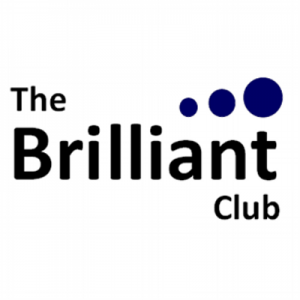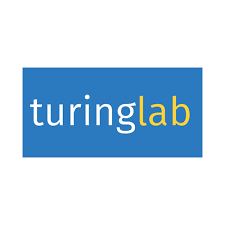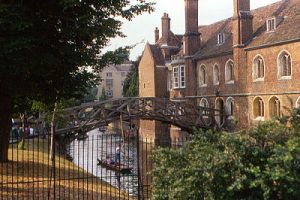KAN APP Summer Residential Update
With planning well underway for the two KAN APP residentials in July 2016 we are delighted to confirm the continuation of our partnership with the Brilliant Club, the formalisation of a link with Queens’ College, Cambridge and an exciting new venture with Turinglab.
The AAF first worked with the Brilliant Club in July 2015, and the partnership now provides a core element of our post-16 provision for those on the APP. Working with the Brilliant Club allows our students to interact with another set of role models, people who have lived the  experiences our students aspire to live, and for our students to be exposed to a University style of working in a University environment, an invaluable experience on their journey towards Higher Education. As the Brilliant Club Chair of Trustees Dame Sue John is quoted as saying on their website, ‘by providing the opportunity to take part in programmes of university-style tutorials, which are led by passionate and committed PhD students and focus on academic development, the Brilliant Club helps pupils to translate potential into places at highly selective universities.’ For our students, the Brilliant Club will deliver a specially designed version of their Scholars Programme, which will take place each morning of the residential. Three PhD tutors, covering Social Sciences, Humanities and STEM subjects, will deliver small group tutorials to our students on their topic of expertise, before setting the students an extended assignment on the topic. Student feedback on the Brilliant Club last year was positive, and the students will no doubt be looking forward to working with them again.
experiences our students aspire to live, and for our students to be exposed to a University style of working in a University environment, an invaluable experience on their journey towards Higher Education. As the Brilliant Club Chair of Trustees Dame Sue John is quoted as saying on their website, ‘by providing the opportunity to take part in programmes of university-style tutorials, which are led by passionate and committed PhD students and focus on academic development, the Brilliant Club helps pupils to translate potential into places at highly selective universities.’ For our students, the Brilliant Club will deliver a specially designed version of their Scholars Programme, which will take place each morning of the residential. Three PhD tutors, covering Social Sciences, Humanities and STEM subjects, will deliver small group tutorials to our students on their topic of expertise, before setting the students an extended assignment on the topic. Student feedback on the Brilliant Club last year was positive, and the students will no doubt be looking forward to working with them again.
The July 2016 residential will be the second time the KAN APP have spent a week in Cambridge, and in addition to our main source of University support up to now, Fitzwilliam College, we will also have a cohort hosted by Queens’ College this summer. Both Cambridge colleges offer the programme free accommodation, as part of their ongoing efforts to improve access and widen university participation. Several Queens’ College postgraduates have also offered to provide lectures and taster sessions to our students, furthering our aim of exposing the students to university style learning and to the wide array of subjects which can be explored through higher education.
In addition, two cohorts will be at Tonbridge School, with a new mentor team for our year 9 (2016) cohort appointed, coming to us from Fitzwilliam and Balliol College, Oxford. With a wide variety of subjects already confirmed, along with a trip to the Imperial College Reach Out Lab, the Tonbridge residential will ensure the new cohort have an inspiring and exciting first AAF residential experience. In addition to this, a deal has been agreed to work alongside Turinglab, a group of former Imperial Computer Science students who now run workshops passing on invaluable computer programming skills to the next generation. Four Turinglab tutors will provide a three hour workshop for our students, further adding to the bespoke nature of the programmes we are putting together.
Commenting on the news, AAF Operations Manager Carl Plane said, ‘We are delighted to have the Brilliant Club providing content at our summer residential again. Their programme was a large part of why last  summer’s Cambridge residential was such a success, and we are keen to replicate that again this year. Last year’s programme stretched and challenged our students, and the results were incredible, with several of our students receiving distinctions in their final assignment. Similarly, we hope the work we will now be doing with Turinglab will be beneficial to our students, equipping them with skills that are increasingly important in the 21st century. Establishing and maintaining these partnerships is a critical element of the APP, and something which ensures that our students get the best and most inspiring experience possible. We are also very pleased to have been able to formalise our relationship with Queens’ College, Cambridge and feel that their commitment to widening participation dovetails very well with the AAF aim of promoting social mobility through educational partnerships. We would like to thank both Queens’ College and Fitzwilliam College for their support so far, and look forward to further collaborations in the future.’
summer’s Cambridge residential was such a success, and we are keen to replicate that again this year. Last year’s programme stretched and challenged our students, and the results were incredible, with several of our students receiving distinctions in their final assignment. Similarly, we hope the work we will now be doing with Turinglab will be beneficial to our students, equipping them with skills that are increasingly important in the 21st century. Establishing and maintaining these partnerships is a critical element of the APP, and something which ensures that our students get the best and most inspiring experience possible. We are also very pleased to have been able to formalise our relationship with Queens’ College, Cambridge and feel that their commitment to widening participation dovetails very well with the AAF aim of promoting social mobility through educational partnerships. We would like to thank both Queens’ College and Fitzwilliam College for their support so far, and look forward to further collaborations in the future.’
